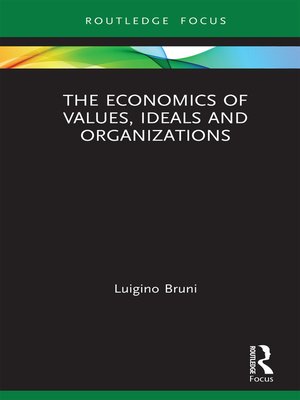
Sign up to save your library
With an OverDrive account, you can save your favorite libraries for at-a-glance information about availability. Find out more about OverDrive accounts.
Find this title in Libby, the library reading app by OverDrive.



Search for a digital library with this title
Title found at these libraries:
| Library Name | Distance |
|---|---|
| Loading... |
Values-based organizations are institutions, communities and non-governmental organizations (NGOs) which are inspired by a mission or a vocation – for these groups it is their ideals which are most important to them and economics does not have a way to incorporate that into its analysis. This book provides a short introduction to the economics of values-based organizations.
The book opens with an analysis of some phenomena common to all organizations: the management of vulnerabilities in relationships and the role of incentives, especially in relation to loyalty. Turning to values-based organizations more specifically, the book explores the motivations of their members, how they retain their most motivated people, what happens when the ideals of the organization are perceived to have deteriorated, and the decisions made by those in charge, who focus on efficiency, oblivious to values and identities. The second part of the book explores the narrative dimensions of values-based organizations. "Narrative capital" is a precious resource in many of these organizations, particularly through periods of crisis and change. But problems can also be caused if the second and later generations after the foundations continue to use the original narrative without enough innovation. Finally, the book discusses the gaps – the surpluses and misalignments – between people, their ideals and the organizations and how these can be managed. The book is written for academics, students and others interested in the role of values and ideals in organizations – economists, sociologist, business scholars, theologians and philosophers.







